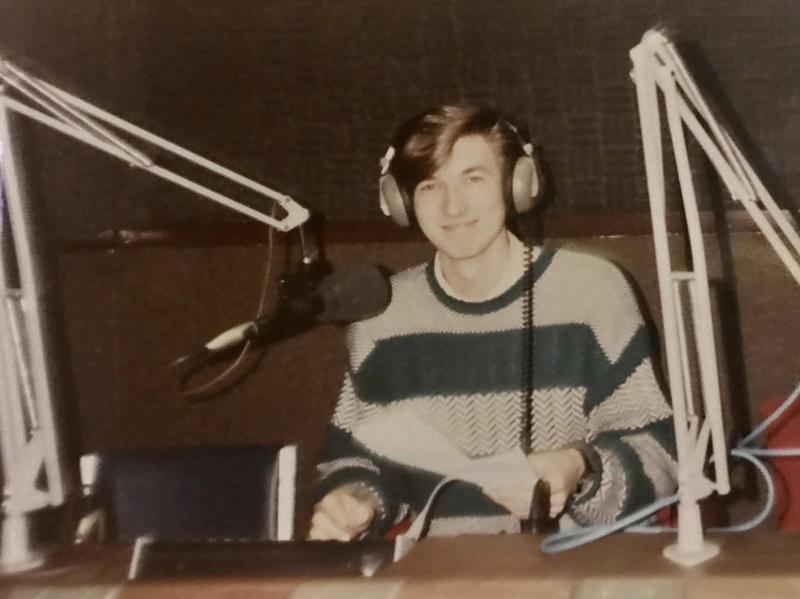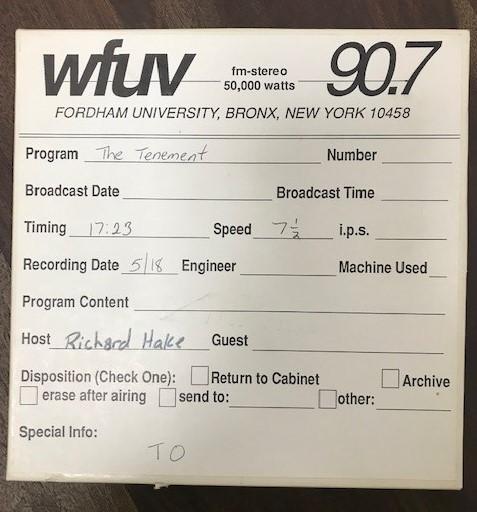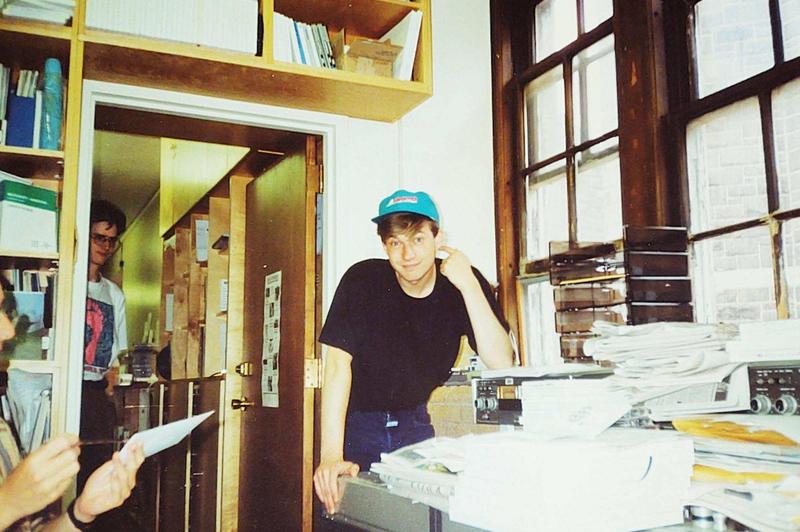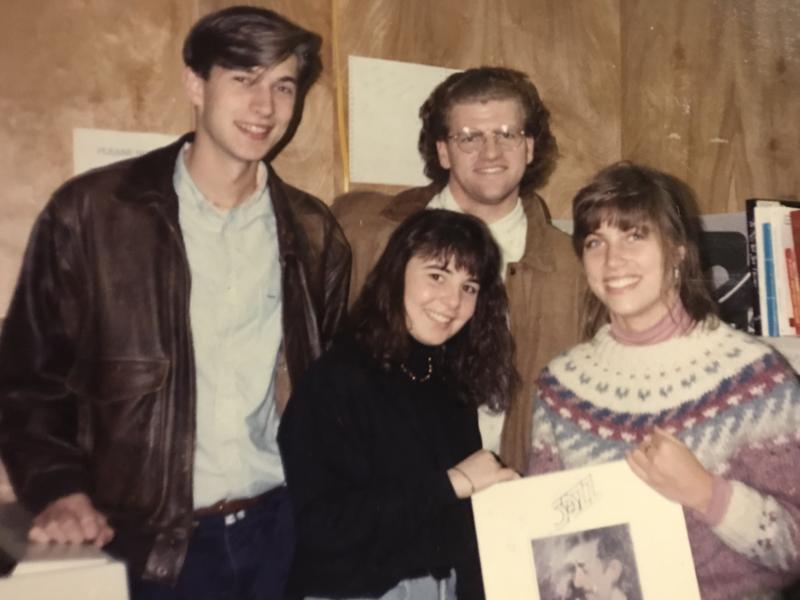
I first met Richard Hake when I was a sophomore at Fordham University in the Bronx. This was 1990, and I knew I wanted to become a journalist, but I wasn't sure in which medium. The day I learned about WFUV, the 50,000-watt public radio station on campus, I thought, "What the heck? I'll see if they'll let me get some radio writing experience." I walked in the door of the newsroom and was pointed in the direction of Richard—a tall, preppy guy with a cool haircut that somehow wasn't messed up by wearing oversized headphones.
Richard—"Rich" as we called him back then—pulled up a chair and showed me how to write a newscast. Soon, I was helping him write stories for his air shifts. He was live on the radio as a local host for the network news program WFUV carried, Monitor Radio. This role required formidable broadcast skills and commitment, especially from a then-college senior. Richard was recording phone interviews and press conferences on a reel-to-reel console, splicing the tape, and dubbing soundbites to carts for broadcast during the show's local newscast, which had to be written precisely to time. He was entrusted with delivering this information live on the air for an audience that went far beyond Fordham's Rose Hill campus in the Bronx to the tri-state area, the nation's top media market.
One day, Richard called in with a cold and I was asked to fill in for him at the last minute. There was no part of my brain that thought this Boston-raised, heavily-accented girl could pull off what Richard was doing on the air. I'm pretty sure I called him in his dorm and asked, "Are you nuts? I can't do your job." But he encouraged me to do it, and I did.
Soon, Richard was spending more time at WNYC, where he began doing newscast shifts before he graduated from Fordham. At WNYC, he went on to encourage and mentor countless other young journalists for the next three decades of his life.
Chuck Singleton, now WFUV's general manager, mentored both Richard and me when he was the station's news director, giving us the freedom not only to go live on the air, but also to do wall-to-wall election coverage and to make feature-length stories that we could feed to Monitor Radio. From the get-go, Singleton found Richard to be remarkable.
"It was very clear to me at the time that this was a young man who's walked in the door, tried on a career, and without hesitation decided that 'This is my life's direction,'" Singleton recalled. "Boom, 'I'm going to work in public radio.'"
Singleton also taught an audio production class at Fordham, and this is where Richard got to produce his magnum opus at the time: a 17-minute documentary about the Tenement Museum.
Earlier this week, Singleton broke quarantine to travel to Keating Hall, the signature building on the Rose Hill campus, to go spelunking for "The Tenement." When it surfaced, he said it was like finding a needle in a haystack. He strung the reel up to an old Otari and dubbed a copy to share with WNYC.
It's telling that Singleton was able to find the reel. Thousands of students have cycled through WFUV over the years, and many have gone on to successful media careers. But not all of them have their work archived in WFUV's storage. Richard stood out in more ways than one.
"He had that signature Richard Hake sound even as a college junior," Singleton said. "The Richard we enjoyed every day on Morning Edition was in many respects the same Richard who walked in the door at WFUV three decades ago."
"The Tenement" was typically played for students who came after Richard at WFUV, as a sort of right-of-passage for assimilating into the station, and public radio. Singleton said students—even graduate students—recognized Richard's broadcast talent.
"He connected with a circle of students in our news department and he found his tribe," he said. "They all looked up to him."
You can hear more about Richard Hake's time at WFUV from Chuck Singleton and Julianne Welby by clicking the play button.
Hear more reflections from Richard's peers at WFUV below.
Jody Fisher:
Lisa Ryley:
Carolyn Cocca:



